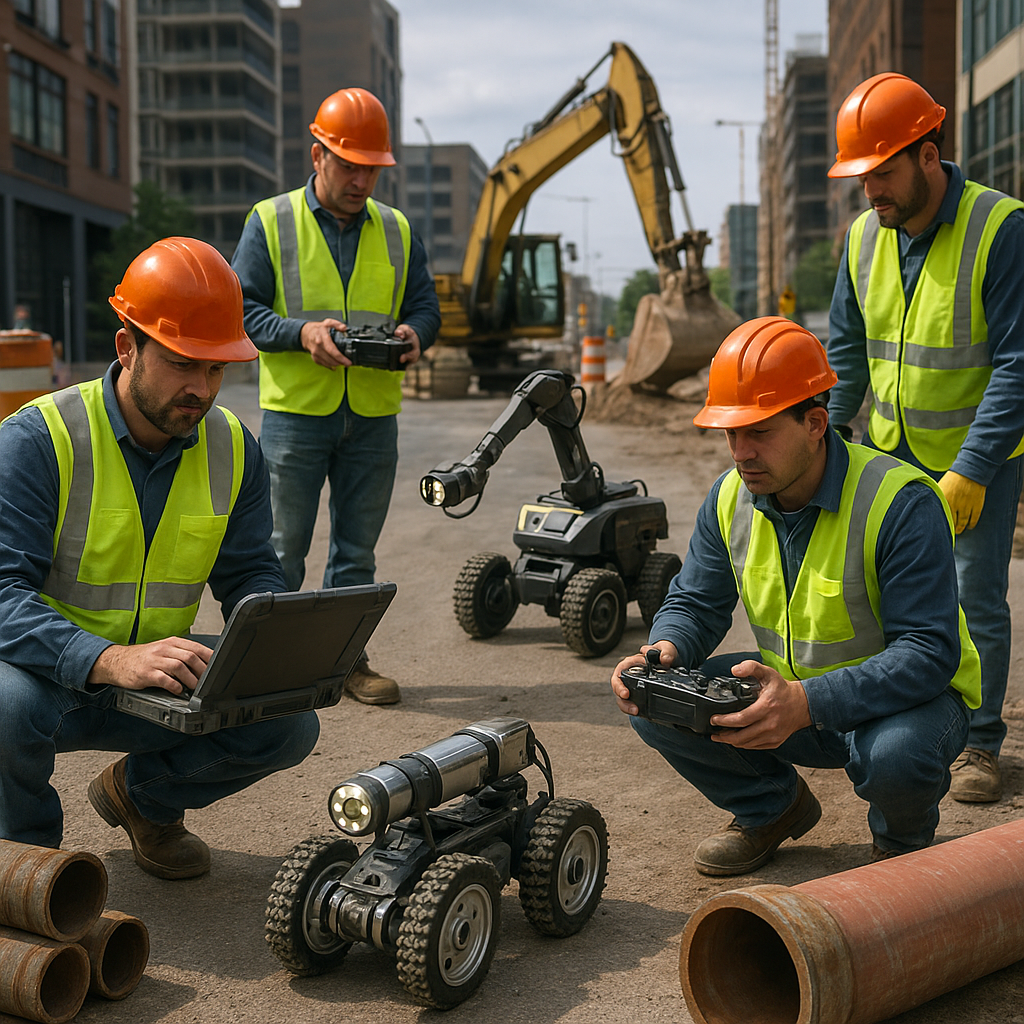Mastering Trenchless Repair Maintenance in 2024
Explore the latest in trenchless repair maintenance, leveraging AI-powered inspection technologies for efficient and sustainable sewer solutions.

Mastering Trenchless Repair Maintenance in 2024
Introduction
The sewer inspection and plumbing industry is experiencing a transformative phase in 2024, driven by technological advancements, evolving regulations, and expanding market opportunities. Central to these developments is trenchless repair maintenance, a method that leverages cutting-edge technologies to provide efficient, sustainable, and minimally invasive solutions.
The Rise of Robotic Inspection Systems
Advancements in Technology
In recent years, the adoption of robotic sewer inspection systems equipped with high-resolution cameras, 3D mapping, and AI-powered automated defect detection has surged. These systems, including notable launches like RIDGID’s SeeSnake microDRAIN APX and Envirosight’s ROVVER X SAT II, represent a significant leap in inspection capabilities.
- High-Resolution Cameras: Offering 4K and ultra-HD imaging for unparalleled defect detection.
- 3D Mapping: Provides a detailed view of pipe conditions, enhancing accuracy.
- AI-Powered Detection: Automates the identification of defects, reducing error rates.
Benefits for Trenchless Repair
Robotic systems facilitate precise trenchless interventions by accurately assessing pipe conditions before and after repairs. This precision minimizes excavation, reduces costs, and limits environmental disruption.
Navigating Industry Regulations
Environmental Compliance
Stricter environmental regulations necessitate regular sewer inspections to prevent leaks and contamination. Trenchless technologies, with their minimal environmental impact, are increasingly preferred.
- Sustainable Practices: Robotic inspections align with sustainable waste management, reducing the need for intrusive excavation.
- Regulatory Alignment: Ensures compliance with environmental standards while providing efficient maintenance solutions.
Market Trends and Opportunities
Growing Market Demand
With urbanization and aging infrastructure driving demand, the sewer inspection camera system market is projected to reach over $600 million by 2032.
- Urbanization: Increases pressure on sewer systems, necessitating regular maintenance.
- Aging Infrastructure: Requires innovative maintenance approaches to extend lifespan without extensive disruption.
Strategic Business Moves
Mergers and acquisitions focus on expanding technological capabilities, providing a competitive edge in a growing market.
Safety and Efficiency
Enhancing Worker Safety
The integration of robotics and remote inspection minimizes human exposure to hazardous environments, enhancing safety.
- Remote Inspections: Reduce the need for manual entry into dangerous areas.
- AI-Driven Analysis: Speeds up decision-making and reduces manual data handling errors.
Best Practices
Regular, proactive inspections using advanced tools are crucial to prevent costly emergency repairs and environmental damage.
Cost Considerations
Pricing Dynamics
Advanced sewer inspection systems with AI, 4K imaging, and robotic capabilities command higher prices, reflecting their enhanced features and efficiency.
- Product Range: From affordable push-rod cameras to high-end robotic crawlers, pricing varies based on features.
- Influencing Factors: Resolution, lighting, software integration, and system durability.
Conclusion
The 2024 landscape for sewer inspection and plumbing is defined by advanced robotic and AI-driven inspection technologies, stringent environmental regulations, and growing market demand. These factors underpin the expanding adoption and effectiveness of trenchless repair maintenance methods, offering a future-proof approach to sewer system management.
Practical Tips for Trenchless Repair
- Invest in Advanced Technologies: Prioritize systems with high-resolution imaging and AI capabilities.
- Regular Inspections: Schedule routine inspections to catch issues early.
- Stay Informed on Regulations: Ensure compliance with the latest environmental standards.